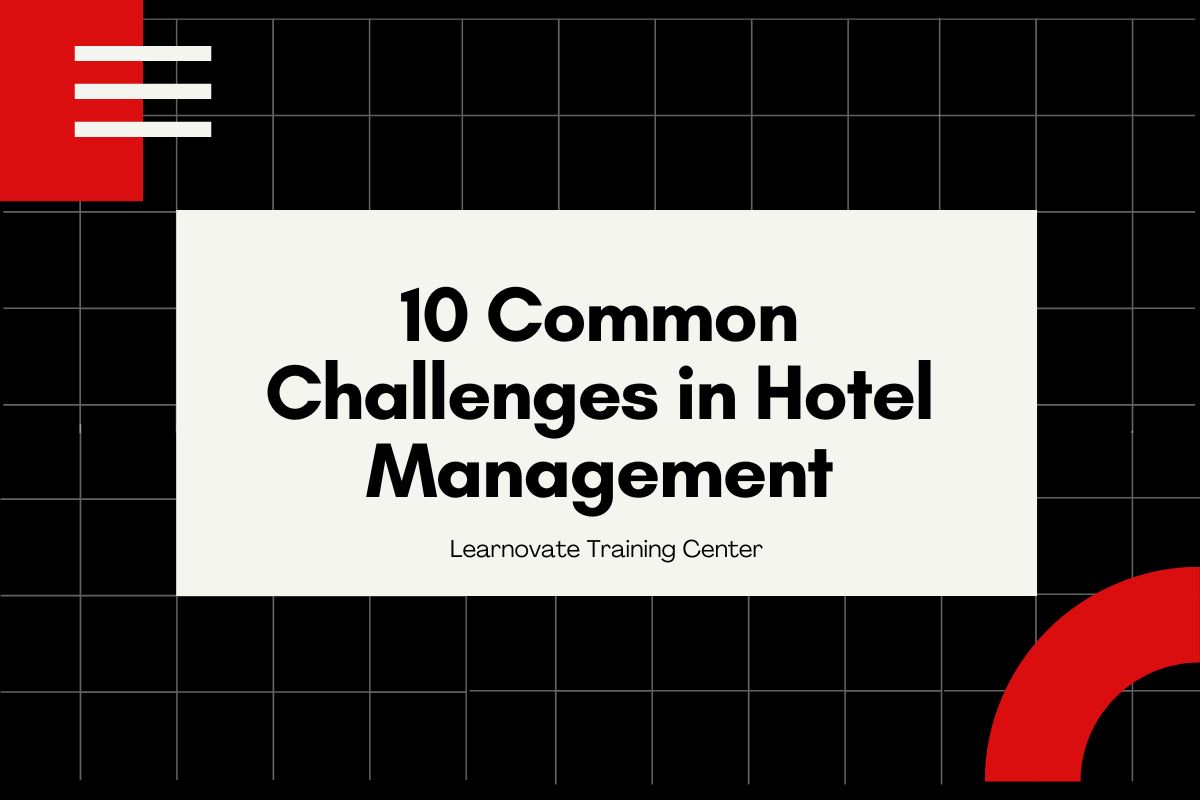Managing a hotel can be an exciting and rewarding experience, but it also comes with its fair share of challenges. From dealing with guest complaints to managing staff, hotel management requires quick problem-solving skills. This post will discuss 10 common hotel management problems and solutions to help you run a successful hotel.
Handling Guest Complaints
One of the biggest challenges in hotel management is dealing with guest complaints. Whether it’s about room cleanliness or noisy neighbors, guest satisfaction is crucial.
Solution: Always have a process in place to address complaints quickly. Train your staff to be empathetic and offer solutions, such as moving the guest to a quieter room or offering a discount. Maintaining open communication with guests ensures they feel heard and valued.
Staff Management
Managing a diverse group of employees can be difficult, especially when there are conflicts or communication barriers. Keeping everyone motivated and on the same page is essential for smooth operations.
Solution: Schedule regular team meetings to improve communication and resolve any issues. Set clear goals and encourage teamwork through incentives and recognition programs. A positive work environment keeps staff motivated and more productive.
Tip: Cross-train employees so they can handle multiple roles in case of staff shortages or busy seasons.
Managing Online Reviews
Online reviews can make or break a hotel’s reputation. Negative reviews may drive away potential guests, while positive reviews can attract new customers.
Solution: Always respond to online reviews, whether they are positive or negative. For negative reviews, apologize and offer a solution to make things right. For positive reviews, thank the guest for their feedback. This shows that your hotel cares about its guests’ experiences. Encourage satisfied guests to leave positive reviews to boost your online presence.
Maintaining High Occupancy Rates
Ensuring that your hotel has a high occupancy rate throughout the year can be tough, especially during off-peak seasons.
Solution: Use promotional offers and discounts to attract guests during slow seasons. Partner with travel agencies and local event planners to bring in group bookings. Maintaining an active social media presence can also help reach a larger audience and promote special deals.
Budgeting and Financial Management
Managing a hotel’s finances is another common challenge. From controlling operational costs to managing unexpected expenses, keeping the budget in check is crucial for long-term success.
Solution: Create a detailed financial plan that covers all expenses, including utilities, salaries, and maintenance costs. Monitor your spending closely and adjust your budget as needed. Implement cost-saving measures such as energy-efficient lighting or smart thermostats to reduce utility bills.
Looking to advance your career in hotel management? Check out our Hotel Management Course to gain expert skills and knowledge to thrive in the industry!
Staff Retention and Turnover
Hotels often face high staff turnover, which can lead to additional costs for recruiting and training new employees.
Solution: To reduce turnover, and provide competitive salaries, benefits, and opportunities for career growth. Regularly recognize and reward hard work to boost staff morale. Offering training programs can help employees feel valued and encourage them to stay longer.
Ensuring Cleanliness and Hygiene
Cleanliness is a top priority in hotel management. A dirty hotel can lead to bad reviews and a loss of guests.
Solution: Establish strict cleaning protocols and conduct regular inspections to ensure that every room and public area is spotless. Train staff on hygiene standards and provide the necessary cleaning supplies and equipment. Regular deep cleaning schedules are also essential to maintain hygiene.
Dealing with Seasonal Fluctuations
Hotels often experience seasonal fluctuations in demand, which can make it difficult to manage staffing and budgeting effectively.
Solution: Prepare for peak and off-peak seasons by hiring temporary staff during busy periods and offering promotions during slow times. Focus on attracting long-term guests during the off-season through extended stay offers or corporate partnerships. This can help maintain steady occupancy rates year-round.
For more insights on maintaining high standards in hotel management, visit the American Hotel & Lodging Association (AHLA), an authoritative source for industry best practices.
Technology Integration
Keeping up with the latest technology in hotel management can be challenging, especially for smaller hotels with limited budgets.
Solution: Invest in essential technology such as property management systems (PMS) that help streamline check-in, check-out, and booking processes. Implement online booking options, automated email confirmations, and digital payment systems to enhance guest experience. Use technology to track guest preferences, which helps personalize their stay.
Keeping Up with Industry Trends
The hotel industry is constantly evolving, with new trends emerging regularly. Keeping up with these trends can be a challenge for hotel managers.
Solution: Stay informed by attending industry conferences, reading hospitality blogs, and networking with other professionals. Implement the latest trends, such as eco-friendly practices or wellness programs, to keep your hotel competitive. Regularly update your offerings to meet guest expectations.
By understanding and addressing these hotel management problems and solutions, hotel managers can improve their operations and provide guests with a memorable experience. While the challenges may seem daunting at times, having a solid plan and proactive approach can help you stay on top of them and run a successful hotel.













